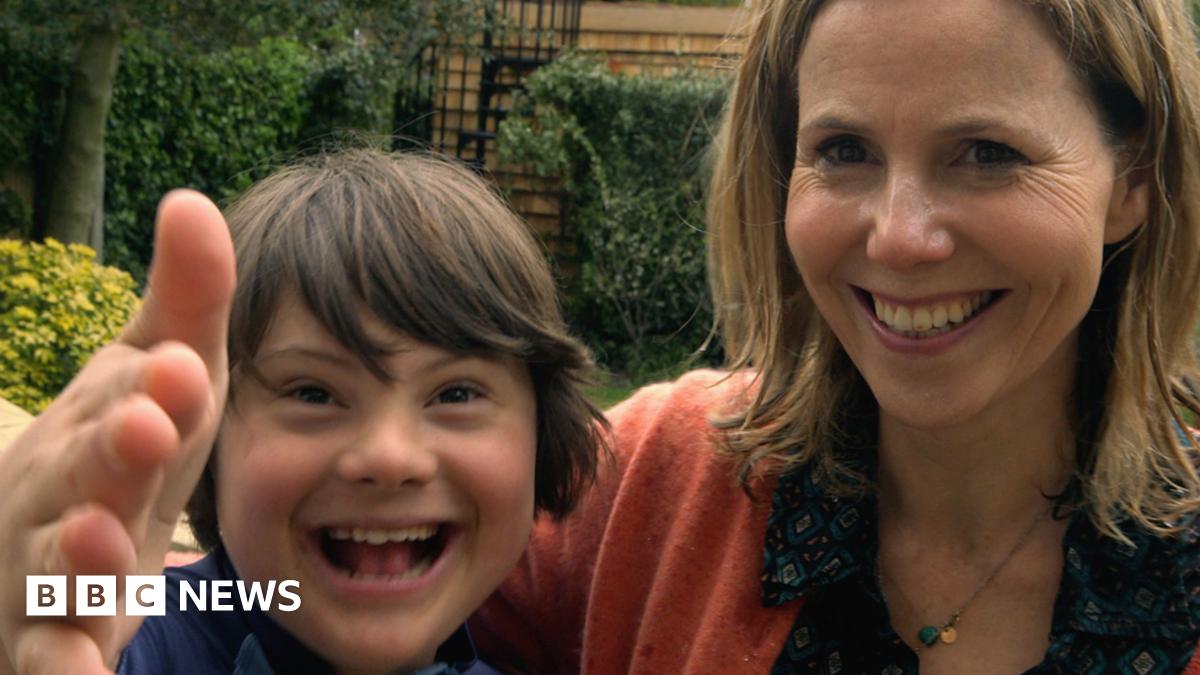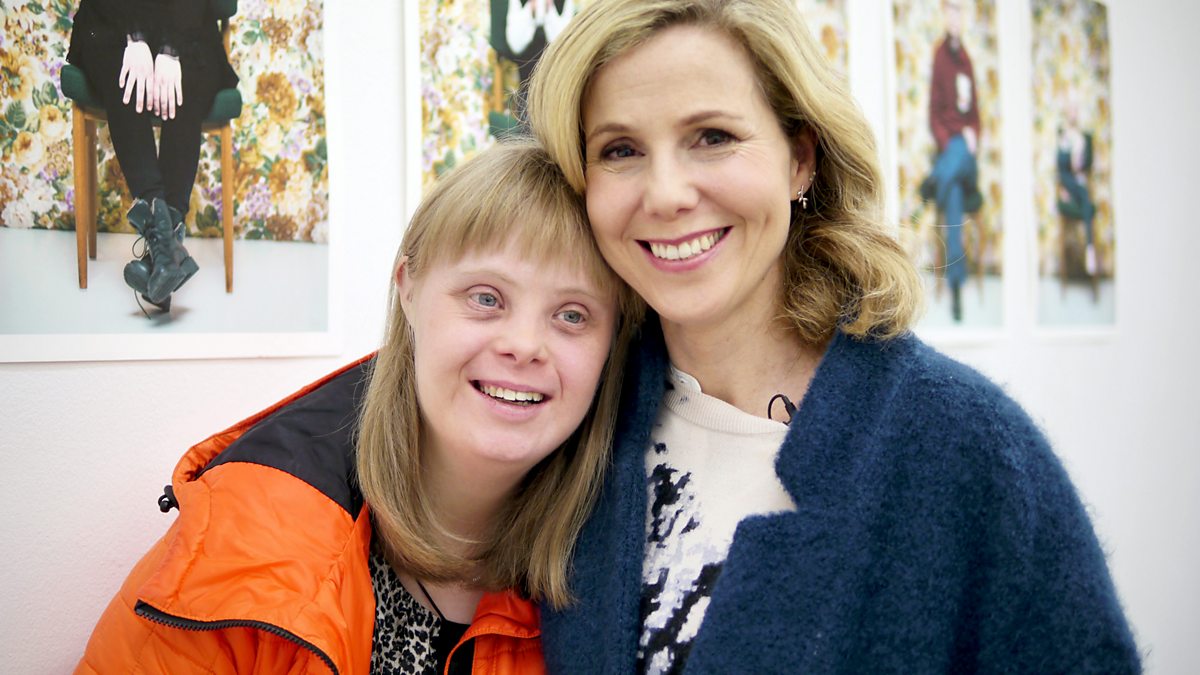Sally Phillips has had a lot of attention for her film which was aired on BBC2 tonight. Although not a terrific piece of television it did explore a fascinating area with Downs at its heart. The eugenics issue at the centre of this programme was not just about Downs but also about the other 'controllable malfunctions' in the human genome. I've been lucky enough to have a couple of good friends over the years who were Downs and was extremely sympathetic to Phillips' position. Personally, I would not have liked to have missed the experience of knowing them. But Phillips worries that they may disappear as societal pressures seek perfection. I thought this programme was very thought provoking.
A world without downs
Collapse
X
-
A very thought-provoking subject. The film created a lot of interest, before and after showing. For those who can't see the film:
The BBC pre-showing discussion:
 Some people are concerned that a highly accurate test that can identify babies with Down's syndrome during pregnancy will lead to more terminations.
Some people are concerned that a highly accurate test that can identify babies with Down's syndrome during pregnancy will lead to more terminations.
And a post showing review:
It isn't given us to know those rare moments when people are wide open and the lightest touch can wither or heal. A moment too late and we can never reach them any more in this world.
-
-
Does Sally Phillips ask who is to take responsibility if the parents made the decision to have the child because of this programme and then find that they are unable to provide the child/the person with support s/he needs now and all his/her life?
Eugenics issue is an interesting and important question but I think putting it publicly in this way is a terribly cruel thing to do to the parents who have to make a very difficult decision.Last edited by doversoul1; 06-10-16, 20:05.
Comment
-
-
As some here might remember, I have a young son who is now six months old. We had this test done (it's only available privately where I am), and the result was negative so there was no need to face this kind of dilemma. Women terminate their pregnancies for all kinds of reasons and of course have had to struggle for the right to make this decision (and still struggle in many parts of the world, as we see from current events in Poland to name only one example). I know from friends that bringing up a child with a condition like Down's syndrome requires - and indeed rewards - enormous commitment of time and energy. I don't think anyone should be demonised for feeling they couldn't face such a thing. And if society isn't able to assimilate people with Down's and not treat them as less worthy of life and fulfilment than others, this is a fault in society... is this fault more or less likely to be addressed if the number of people with the condition falls massively? I don't think that question can be answered. But it's a first world problem anyway. Most people in the world won't have access to 99% certain non-invasive chromosome tests for the forseeable future.
Comment
-
-
The Guardian
The question of what kind of society we want to live in, is, to my mind, is even more simple; one in which women are not dismissed as ‘uninformed’ or ‘wrong’ on national TV – or anywhere – for making a choice about their pregnancy […]
https://www.theguardian.com/commenti...nate-pregnancy
Comment
-
-
Didn’t the Victorians preached/believed that the poor were there so that the rich could be charitable? This programme seems to me to be coming from not so dissimilar thinking. Let’s make sure that there will always be babies born with Down’s syndrome so that we, society is able to harvest the reward.Originally posted by jean View PostThe arguments being advanced against testing form Downs seem to me fundamentally dishonest. These campaigns do not show us children from the other end of the spectrum. If you didn't already know, you would never guess.
I think this programme is dishonest because it seems to purport to be about society’s attitude towards the people with Down’s syndrome but it is in fact promoting one individual’s idea about a life with a child with Down’s syndrome as the moral standard to be followed irrespective of individuals’ circumstances.
Comment
-
-
I guess even if they had decided to show more severely affected individuals, they’d have found someone saying how very rewarding it all was to care for the person, because (I think) caring for the affected individuals isn’t the point of the programme/campaign. The point is, so it seems to me, that women should not be given a choice about their pregnancy so that babies with Down’s syndrome will keep coming and keep our society a good place for 'us' to live in.Originally posted by jean View PostWhat I meant by dishonesty was the failure to make clear that by no means all Down's Syndrome children are anything like as capable as those we were shown, and on which the present arguments mainly rest.
Comment
-
-
For me one of the issues that came through from the programme was that Sally Phillips was saying that the description of Down's Syndrome that was given in the information was purely medical and for her bore little or no relation to the person that she knows and loves. This for her was the misinformation that women were being given. The expectant mother who already had a Down's child and had decided that she did not want the matter of Downs wrt her second child discussed with Doctors was part of this. She felt that she would be bullied into accepting that she was making a mistake by bringing a Down's child into the world if the test proved positive.
And here lies the nub for me - why is it Down's that is chosen for this treatment? Is it just because we can test for it but not for, say MS or Motor Neurone Disease? Is it because a Down's child uses a large amount of public resources? I was horrified by the guy who had a complete genome performed for his unborn foetus looking for the 'perfect child', and yet, according to the programme this service is now available for under $1000. Yes, society has a problem and I think that Phillips was suggesting that many of us are uninformed about where this road is leading and that it's not just about Down's Syndrome, and it's not just expectant Mothers.
Comment
-
-
Babies are not born with MS or motor neurone disease.Originally posted by johncorrigan View Post...why is it Down's that is chosen for this treatment? Is it just because we can test for it but not for, say MS or Motor Neurone Disease? ...
However there are many genetically transmitted conditions for which couples can obtain counselling.
Comment
-
-
I didn't know whether to comment as I don't want controversy. There is a woman at the end of my road who works with Down's people. I bumped into her and them once in a supermarket and sometimes one or two walk past my house. A man at work had a Down's son. He was a very relaxed sort of guy and would tell us about their holidays together - backpacking as it happens in the Whitby area and having to ensure that his son didn't wander off a cliff. He laughed as he mentioned the near misses when they had got safely back home. Another Down's man lived locally for many decades and shared a house with other Down's people. The house caught fire and there was according to the papers the suspicion of arson by one of the residents. No one died but I never saw him or them again. That was sad and I wondered if any assessment of what happened would be fair or accurate.
Down's people are recognizable. No doubt they are as different from each other as other people but it makes me happy to see them and hear about them when things are going right. I get a very positive feeling there whereas seeing actors and actresses going through extensive cosmetic surgery depresses me. That has to be something vaguely about eugenics and/or politics. In a fantasy world, I feel I would have been quite a good parent to someone with special needs but pretty hopeless with someone who did not have special needs. This is very easy to say, I know, and avoids consideration of the immense difficulties that can be involved day-to-day. But those who know me might not all disagree. I can be astonishingly capable with people who I perceive as vulnerable but I am intimidated at times to an extent that some can find incomprehensible by what we are told is regularity.Last edited by Lat-Literal; 07-10-16, 19:49.
Comment
-


Comment